Life
Sign up for our newsletter
We summarize the week's scientific breakthroughs every Thursday.
-
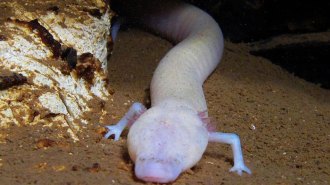 Animals
AnimalsOne blind, aquatic salamander may have sat mostly still for seven years
Olms may live for about century and appear to spend their time moving sparingly.
By Jake Buehler -
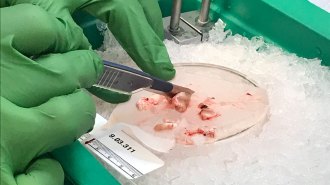 Neuroscience
NeuroscienceLiving brain tissue experiments raise new kinds of ethical questions
An ethicist describes the quandaries raised by working with tissue involved in human awareness.
-
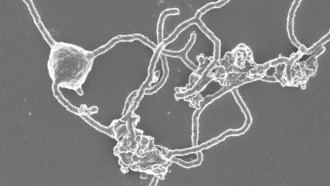 Life
LifeMicrobiologists took 12 years to grow a microbe tied to complex life’s origins
Years of lab work resulted in growing a type of archaea that might help scientists understand one of evolution’s giant leaps toward complexity.
-
 Health & Medicine
Health & MedicineCoronavirus’s genetic fingerprints are used to rapidly map its spread
Fast and widespread scientific data sharing and genetic testing have created a picture of how the new coronavirus spreads.
-
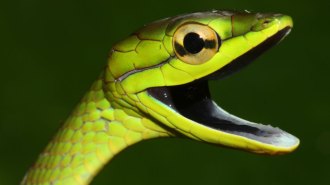 Animals
AnimalsSnakes suffered after a frog-killing fungus wiped out their food
A frog-killing fungus that swept through Panama had a hidden effect. A new study finds that snake diversity declined post-fungus at one field station.
-
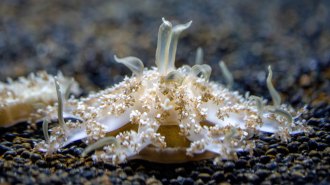 Animals
AnimalsJellyfish snot can sting swimmers who never touch the animal
Researchers have found mobile cellular blobs coated with stinging cells in mucus from a jellyfish that sits upside-down on the seafloor.
-
 Animals
AnimalsWith a litter of tactics, scientists work to tame cat allergies
New research may reduce the allergen levels of house cats or make people less reactive to our feline friends.
-
 Humans
HumansSome West Africans may have genes from an ancient ‘ghost’ hominid
A humanlike population undiscovered in fossils may have passed helpful DNA on to human ancestors in West Africa starting as early as 124,000 years ago.
By Bruce Bower -
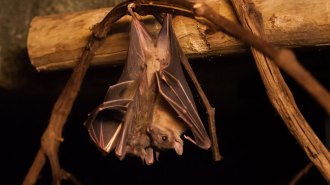 Life
LifeBats’ immune defenses may be why their viruses can be so deadly to people
A new study of cells in lab dishes hints at why viruses found in bats tend to be so dangerous when they jump to other animals.
-
 Life
LifeWolves regurgitate blueberries for their pups to eat
The behavior, documented for the first time, suggests that fruit may be more important to wolves than previously thought.
By Jake Buehler -
 Ecosystems
EcosystemsWill Australia’s forests bounce back after devastating fires?
Intense bushfires that have blazed down Australia’s eastern coast could have long-lasting effects on the continent’s unique plants and animals.
-
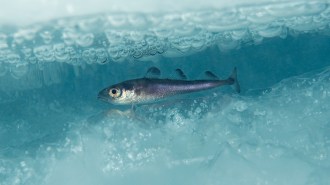 Oceans
OceansNoise pollution from ships may scare Arctic cod from feeding grounds
Melting Arctic sea ice is opening up northern waters to increased shipping, and the vessel noise is taking a toll on Arctic cod.